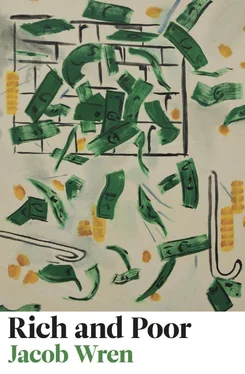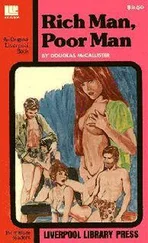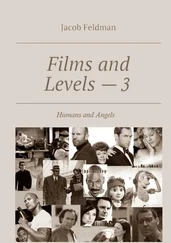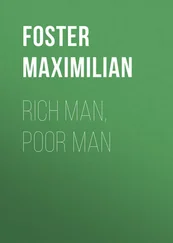The press release calls it an ‘extensive research trip,’ but I now realize it is something much closer to probation. I am travelling for work, having meetings, seeing many of our operations around the world. But back at home my decisions are no longer acted upon with lightning speed. I am still in charge, yet not in charge to anywhere near the degree I once was. But is this actually the case? Of course no one will look me in the eye and tell me so, that anything has changed. Instead they tell me to keep travelling. This trip was originally my idea, my decision. I thought it would be good to get some perspective on the overall scope of our organization. But when I boarded that first airplane, it seems I also showed my throat.
In Germany, I am in a meeting with several executives from what was once a local media group consisting of forty television and radio stations. They are somewhat less than thrilled to be meeting with me, fearful that my visit equals imminent cutbacks. I assure them I’m only here on a sightseeing tour, but they seem unconvinced. When I use words like ‘creativity’ or ‘vision’ they bristle. I can feel that this is not the way they do things. They prefer careful research and planning. I change tack, expressing somewhat less-than-genuine interest in their lengthy statistics and projections, how they hope to slowly dominate the national market over the next twenty years. I casually mention that I look forward to seeing their plans come true and, as I do so, one of them, I think he might be the youngest — it is a family business, so perhaps he’s even the grandson or great-grandson of the original founder — looks straight at me with a look I can’t quite decipher. I ask him if anything is wrong and his answer bothers me all the way back to the hotel. He says, less than tactfully he later admits, that no, it’s nothing. He just can’t imagine I’ll still be around in twenty years. It was just a strange thought for him.
2.
The downtown strips of small towns like these are endlessly alike. I have only been to a few in my life and yet, in my memory, can barely tell them apart, nor can I tell any of them apart from the one I currently find myself in. I am looking at the street, at the storefronts, and thinking of what I did wrong. The piano wire was too nostalgic, too ineffective. A knife or gun would have been better. I am wondering if there is any way I can go back, try again, or convince someone else to go in my place. Or if there’s another billionaire I could train my sights on, turning the first attempt into a test run. What if I tell myself it had only been a chance to try things out, to carefully learn from my mistakes. I can feel the roll of bills in my pocket and wonder if I should buy anything, new clothes that would be as inconspicuous as possible. I am back in my dishwasher’s attire, having left the suits, anything that was expensive, far behind.
I am about to go into a diner for cheap coffee when I see something ahead, at the very end of the road. It’s a lot of people, they look almost like a mirage, since they are far away in the heat. With nothing else to do in life, since I don’t even know why I’m here, I start walking towards them, and it is a few long minutes before I realize it’s a much larger crowd, they are much further away, than I originally thought. By the time I reach them I’m sweating hard, the sun here is cruel, and I’ve arrived at the far edge of town, which opens out towards a field, though there is more dirt than grass. In front of me are maybe a few thousand people doing nothing. I stand at the edge of the crowd gazing into it, thinking that I have no idea where I am or what I’m looking at. A small cluster of men stand directly in front of me, and I begin to eavesdrop. Only moments later do I realize that they’re speaking my language, the language from childhood. I hear it so rarely now that sometimes I almost forget. A part of me must believe I have left that language behind forever, but here it is again, directly in front of me, like a message from the past.
One of the men sees me, realizes I am listening, calls me over. As I walk towards him, I wonder if I will still remember how to speak.
Him: You looking for work too?
Me: That’s what we’re all doing here? Looking for work?
Him: What else?
Me: How long have you been waiting?
Him: A couple of days.
Me: I just got here.
Him: Obviously. What do we look like, a bunch of fucking idiots?
He laughs, but warmly, and his friends laugh along with him. I feel I’m speaking like a child, or not quite like a child but definitely not like myself. Perhaps only like my younger self. At the same time, as I speak, more and more words come back to me, flooding back into my head.
I spend the afternoon with them, learning how it all works, amazed at how open and relaxed they become with me, maybe only because we’re speaking the same words and therefore they consider me family. You wait here in the field and a bus pulls up. A man gets out of the bus and announces the crop: oranges, cucumbers, soy, etc. Everyone scurries towards the bus and they count off the heads as people scramble on. The moment the bus is full it drives away. In the morning, often there are several buses for each crop. As it moves towards noon things slow down considerably until finally, around one, there are no more buses, and those left behind have to wait until tomorrow. When the sun goes down the buses return, drop everyone back here, and people cook, set up tents, drink, or just try to find sleep on some patch of dirt, hopeful for a more lucrative day tomorrow. The work is hard and the pay meagre, ‘like the dirt we’re all standing on,’ they joke, but if you’re lucky you can save a little to take home when the season is done.
What is clear is that the guys I’m talking to — and most of those who surround us, who practically litter this field, scattered haphazardly in every direction — must, each in their own way, feel they have no choice. Being here clearly sucks, standing around like some crappy products on a supermarket shelf that the buses can scoop up or leave behind, it makes little difference. Whatever awaits them back home is likely far worse. Actually, they don’t speak much to me about home, which is perhaps why I assume the worst.
The next morning, first thing, I find myself back at the edge of the same field. I have no desire to farm, but it feels good to speak my own language, a reminder of life before the piano, of long before one single-minded, murderous goal consumed the totality of my days. Maybe farming is good honest work, maybe I now need something honest in my life, but from the way I stand here, from the feelings I am sure are splashed across my face in Technicolor, I remain unconvinced. I slowly shuffle through the crowd, finding my friends from the day before. They receive me warmly and I think about how long its been since anyone has greeted me with genuine warmth. Is it possible the last time was when I was a child? And then, without me quite realizing what has happened, they all rush towards a bus that just arrived and, pushed forward by the crowd, I rush along with them, hesitating for a brief moment before I climb on, as others shove past me and the bus pulls away. They wave to me from the window, laughing, telling jokes to each other (or at least so it seems) about what a rank amateur I am, and how stupid I must look standing there alone as the bus recedes into the distance.
1.
What could I still do that would genuinely surprise? That would jolt those who had lost faith in me, pull the carpet out from under their preconceptions, force them to see me in a different light? One event directly preceded my current, endless travel: the global market crash and the rather banal subsequent bailout. I’ve lived through a few big crashes in my life, but this was by far the most apocalyptic. I think few people to this day realize the actual, overwhelming extent of it. Maybe it had something to do with the attack, from which I was still recovering, but it takes a lot to shake me and I was shaken. This was back when I was drinking, so it was alcohol I’d most often make use of to calm my nerves. I was in the bar, around noon, when the calamity was first announced, and a few dozen of us leapt out of our chairs, hurrying back to our respective offices, but on my way to the front door I realized the bar was a considerably more attractive proposal, and as I looked around it was clear that half the room was panicking, rushing to work, while the other half was calm.
Читать дальше












